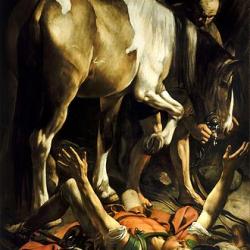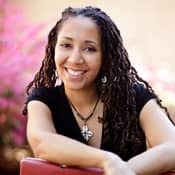I know that men wrote the Bible. That's no surprise to anyone who has had a brush with feminism or biblical scholarship. But there are times when one is more aware of this than at other times. As I mourn the loss of my miscarried babies, I think of how the Bible tells the stories of barren women.
When I read about Sarai, Leah, Rachel, Hannah and Elizabeth, the story is always the same. The woman cannot have children.
Like a choose-your-own-adventure novel, the story goes like this:
Option A: You give your husband your maidservant, who then gives him a male child or two or three, and then, later, God opens your womb so you can bear a male child yourself.
Option B: You pray to God about how much you want children, and then, later, God opens you womb so you can bear a male child yourself.
You end up on the same page at the end: the male child becomes an important religious leader.
I wish!
First of all, it's hard to know much about a biblical woman's barrenness. Perhaps they had children, but they were all girls, and only boys really count to the biblical writers. Perhaps they could get pregnant, but they always miscarried. Maybe they were never able to get pregnant. But if one chose option B, there's no way to know which attempting parent bore biological responsibility.
In any event, it's too neat. The women cry out to God—or scoff God says as in Sarai's case (which is very understandable for a 90 year-old woman)—and God makes it happen. The women thank God for the male child and salvation history continues, happily ever after.
In real life, barrenness is much more complicated. It's infertility and miscarriages. It's bleeding and not-bleeding—but on the opposite schedule than you want. It's counting days, doctor visits, taking blood, running tests, more doctor's visits and a slew of bills and—if you're lucky enough—insurance forms. And did I mention what it does to sex?! What was once fun and adventurous can become calculated, programmed or halted.
And then there's the ending. In real life, God's "fix" is not always a boy-prophet. Sometimes it's adoption. Sometimes it's a birthed child. Sometimes it's nieces and nephews. Sometimes it's finding peace with childlessness.
At least that's how it is for me and the other women who I talk with. But that's the other thing. In real life, there are other women.
After I miscarried, the women came.
One sister-friend let me sleep on her bed between doctor's appointments. She took my midnight texts when I asked her, "But what do I do about the grief?"
My play-sister looked at pictures of every pregnancy test, helping me to decipher how many lines I saw
Another sister-friend brought her teen to play with mine, dragging me out of the bed and into the light of day
Another sister-friend found out the pain had me in bed and brought two days worth of dinner for my entire family
My mother drew me a bath, knelt on the bathroom floor and washed my hair
If women wrote the Bible, it might mention how messy the enterprise of not having children really is. It might mention the girl children the women loved. It might talk about how the men were in the temple, while the bleeding women gathered somewhere else. If women wrote the Bible, we would have more than these solitary scenes where a woman pours out her heart to God, and God fixes it by "opening her womb."
If this woman wrote the Bible, I'd write about barren women ... and the women who support them. Those stories would be my love letter to them.
10/3/2011 4:00:00 AM





